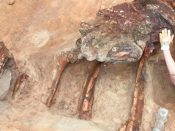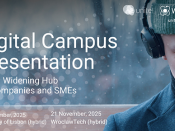An introduction to Constructive Zermelo-Frankel set theory / A calculus for worms
15h00
An introduction to Constructive Zermelo-Frankel set theory
Nicola Gambino (University of Leeds)
Abstract: Constructive Zermelo-Frankel set theory (CZF) was introduced by Peter Aczel in the 70s as a setting for the development of constructive mathematics. Since then, it has been studied from several points of view. In particular, it has been shown how it is related to other frameworks for constructive mathematics (such as type theory and topos theory), how it admits Heyting-valued and realizability interpretations (leading to relative consistency and independence results) and how significant parts of constructive mathematics (such as pointfree topology) can be developed within CZF. The aim of the seminar is to give an introduction to CZF, starting from its axiom system and leading up to some recent developments.
16h30
A calculus for worms
Ana Borges (Universitat de Barcelona)
Abstract: Dashkov (2012) described the Reflection Calculus (RC), a strictly positive fragment of the polymodal provability logic GLP (Gödel-Löb). It is weak enough to have nice semantic properties (as opposed to GLP), but still strong enough to accomplish a variety of proof-theoretic goals. The language of the closed fragment of RC, denoted RC_0, includes only top, conjunctions, and diamonds. A worm is simply a formula in the language of RC_0 without conjunctions. It is known that every formula of RC_0 can be equivalently written as a worm. So one wonders whether it would be possible to work only with worms, maintaining the same proof power available in RC_0. The answer is yes. We present a calculus for worms and show that it proves exactly the same conjunction-free closed statements as the Reflection Calculus. Joint work with Joost Joosten.
This seminar is supported by National Funding from FCT - Fundação para a Ciência e a Tecnologia, under the project: UID/MAT/04561/2013.





















